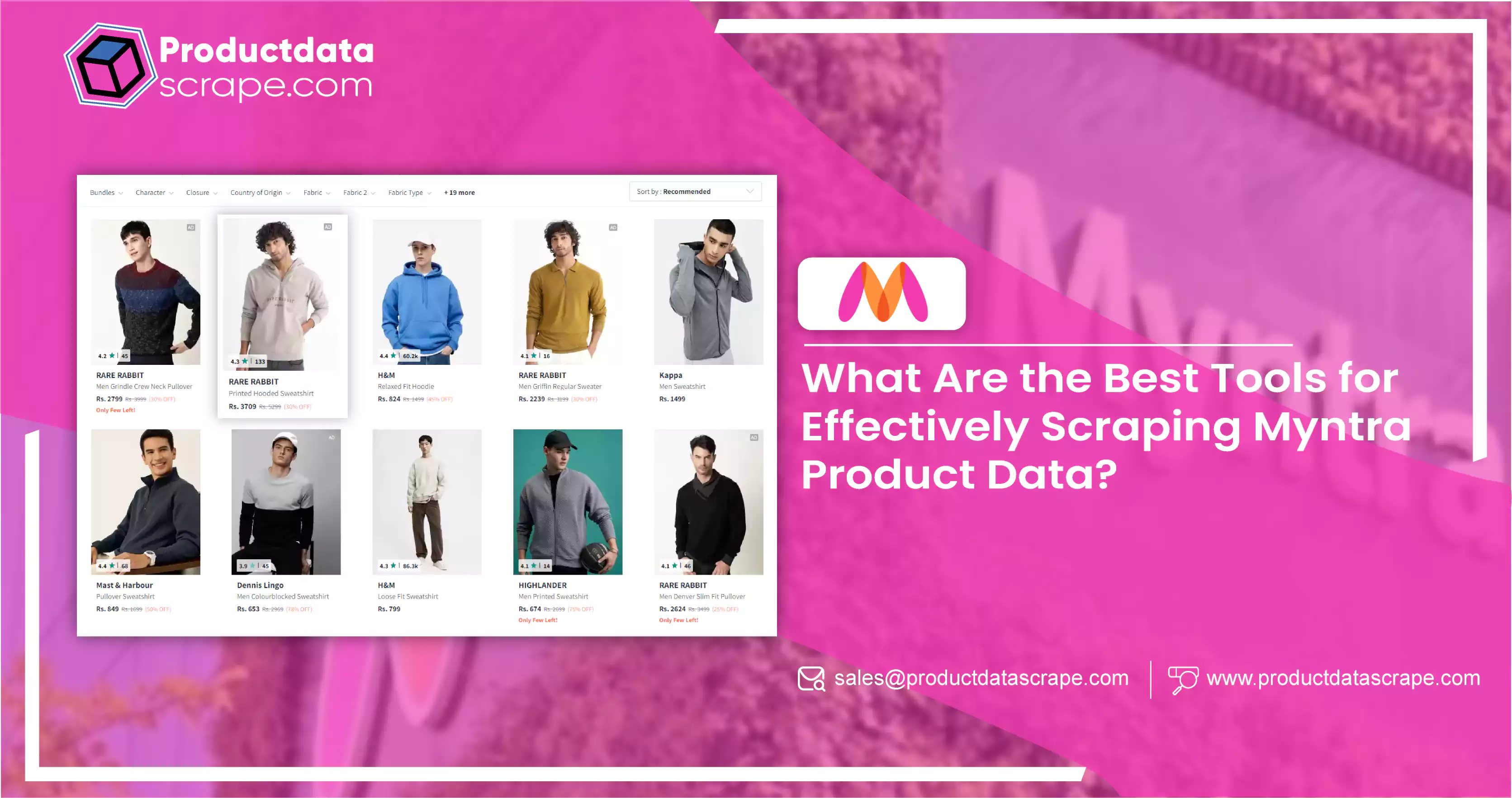
In the dynamic world of e-commerce, data is crucial for gaining competitive insights and making informed decisions. Myntra, a leading fashion and lifestyle e-commerce platform in India, provides a wealth of data that is beneficial for businesses, researchers, and developers. This article explores e-commerce data scraping, detailing methods and tools for effective extraction. Specifically, we focus on scraping Myntra product data using tools like BeautifulSoup, Scrapy, and Selenium and ethical scraping practices. Best practices such as using proxies, monitoring website changes, and implementing robust error handling will be addressed. By following these guidelines, you can efficiently extract data from Myntra, leveraging it for competitive analysis, market research, price monitoring, and detailed product data collection.
Why Scrape Myntra Fashion and Lifestyle Data?
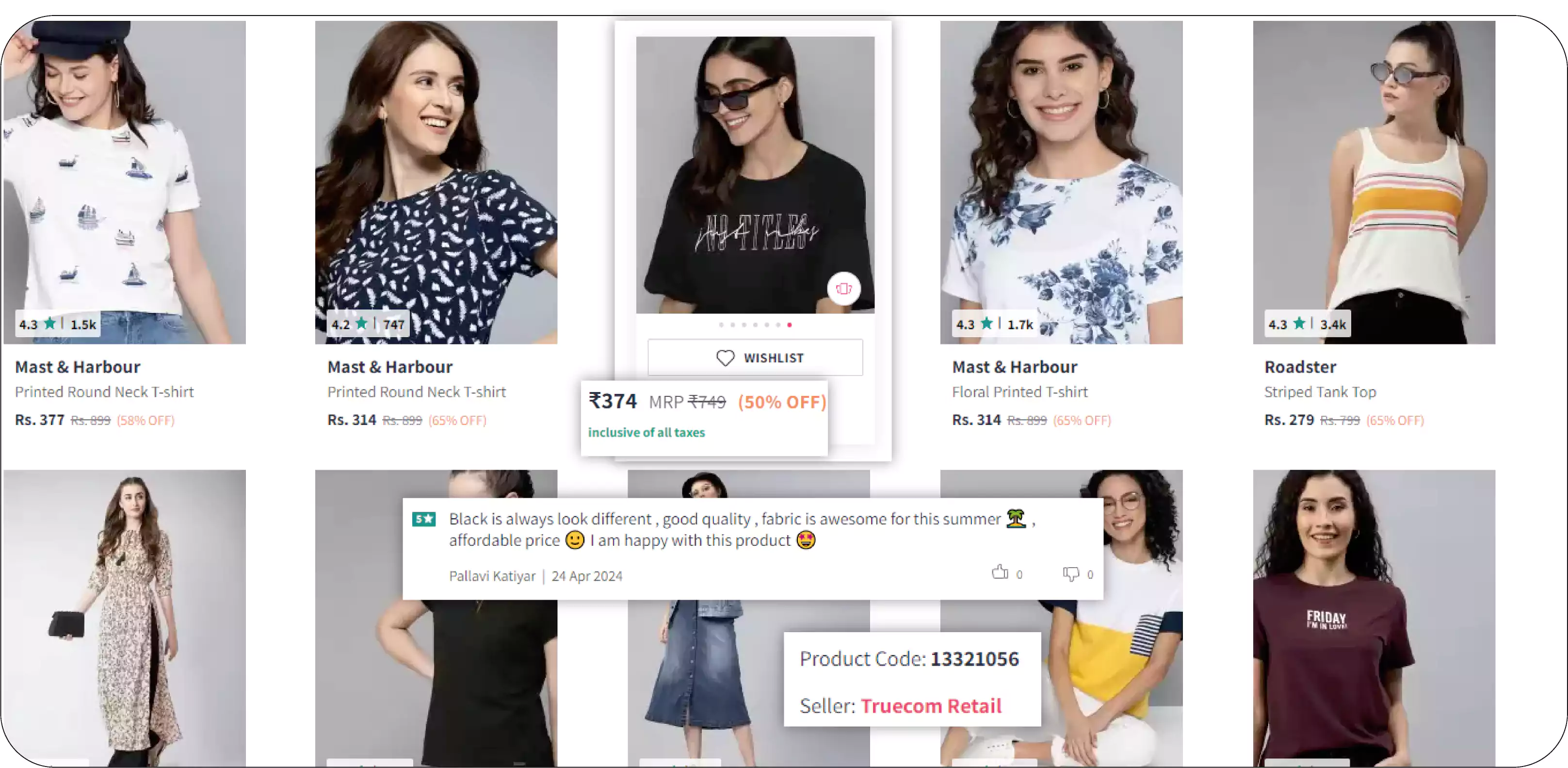
Scraping Myntra's fashion and lifestyle data offers insights into market trends, competitive pricing, and consumer preferences. This data can enhance inventory management, marketing strategies, and product development, providing businesses with a competitive edge in e-commerce.
- Optimize Product Assortments: Accessing detailed data on Myntra's product offerings helps curate and optimize product assortments based on consumer preferences and market demand. The pricing strategies ensures that the product range aligns with current trends and customer expectations.
- Benchmarking Performance: E-commerce data scraping services allow businesses to compare their product performance against a leading e-commerce platform. This comparison helps them assess the effectiveness of their own products and strategies and identify areas for improvement.
- Identify Emerging Brands: Extract Myntra website data to help businesses discover emerging fashion brands and new product lines. This provides opportunities to collaborate with or introduce new brands, gaining traction in the market.
- Track Seasonal Trends: Using Myntra data scraper, collect data on seasonal collections and promotions to understand seasonal buying patterns. This insight aids in planning marketing strategies and inventory levels for different times of the year.
- Monitor Product Reviews and Ratings: Scraping customer reviews and ratings from Myntra provides valuable feedback on product quality and consumer satisfaction. This information can be used to address product issues and enhance overall quality.
- Analyze Marketing Campaigns: Data on Myntra's promotional campaigns, discounts, and special offers can be analyzed to understand the effectiveness of various marketing strategies. This helps you design more effective campaigns for your own business.
- Explore Niche Markets: Myntra's extensive product catalog can reveal niche markets and underserved specialized product categories. This insight can help target specific customer segments and expand product offerings.
- Enhance Competitive Intelligence: Regularly extracting Myntra data provides ongoing insights into competitors' activities, including new product launches, pricing changes, and marketing tactics. This information is crucial for refining competitive strategies and staying ahead.
Tools for Scraping Myntra Website
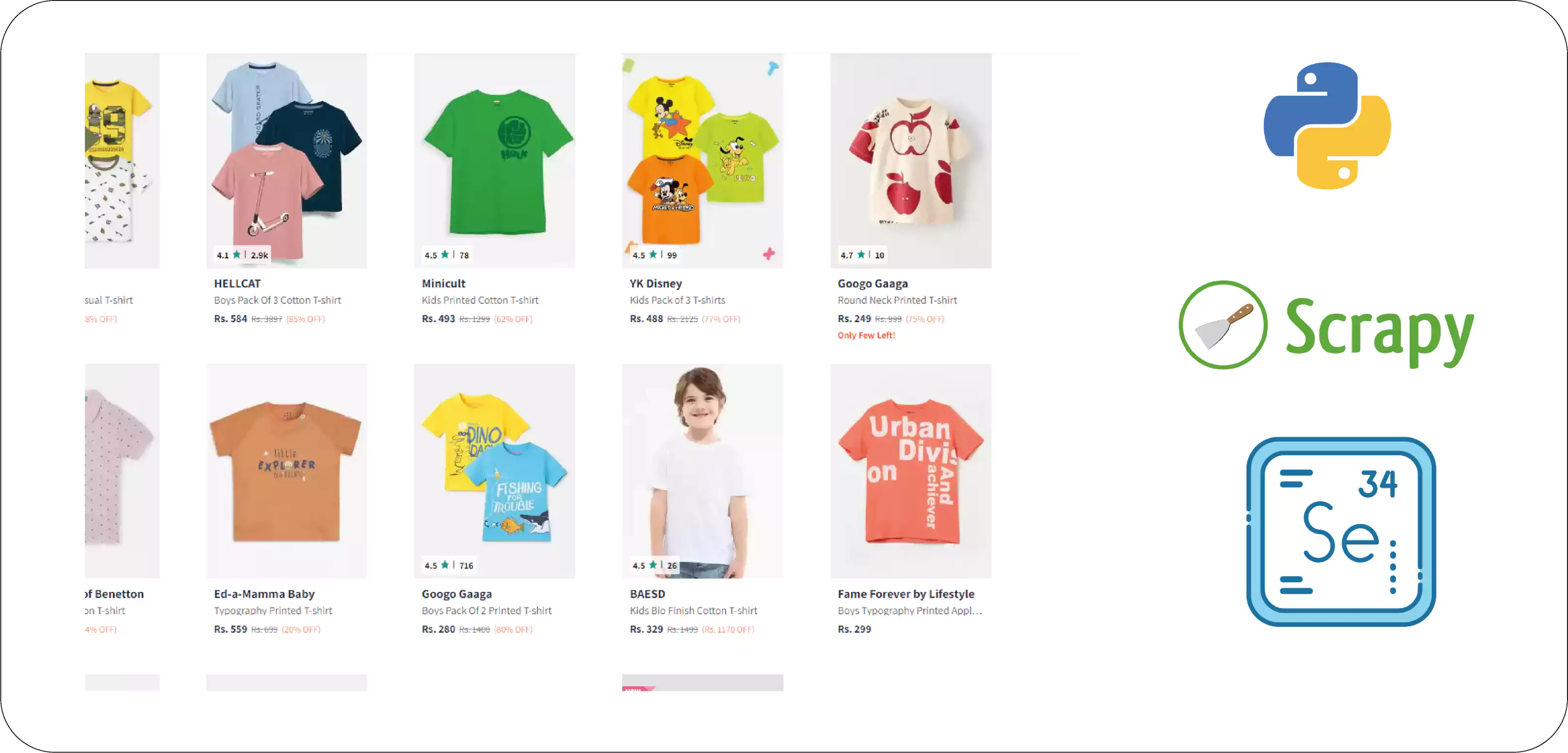
Several tools and libraries are available to facilitate the web scraping Myntra data, each offering unique features tailored to different scraping needs. Here's a detailed overview of some popular options:
BeautifulSoup: BeautifulSoup is a Python library designed to parse HTML and XML documents. It creates parse trees from page source code, making navigating and searching for specific elements easy. This library is ideal for extracting data from static pages where the content structure is consistent. It works well in combination with the requests library to fetch web pages.
Scrapy: Scrapy is a robust, open-source web crawling framework for Python that is suitable for large-scale scraping projects. It provides comprehensive tools to handle requests, parse responses, and store data. Scrapy's robust features include support for handling multiple requests concurrently, managing user sessions, and exporting data in various formats such as JSON, CSV, and XML. Its built-in support for handling complex web interactions makes it a preferred choice for extensive web scraping tasks.
Selenium: Selenium is primarily known as a browser automation tool but is also widely used for web scraping, particularly for websites with dynamic content rendered by JavaScript. Selenium can control web browsers programmatically, allowing you to interact with web elements as a real user would. This makes it practical for scraping content that requires user interactions, such as clicking buttons or scrolling through pages. Selenium supports multiple browsers, including Chrome, Firefox, and Safari.
Each tool has its strengths and can be selected based on the specific requirements of the scraping task, such as handling dynamic content, dealing with large-scale data extraction, or working with static web pages.
Steps to Scrape Myntra Product Data
To effectively scrape Myntra product data, follow these essential steps:
Define Objectives: Determine the specific data you need from Myntra. This could include product names, prices, categories, descriptions, images, and reviews.

Set Up Your Environment: Install the necessary libraries and tools. For instance, if you are using Python, you can install BeautifulSoup and requests using pip:
pip install beautifulsoup4 requests
Inspect the Website: Use browser developer tools to inspect the Myntra website. Identify the HTML elements that contain the data you want to scrape.
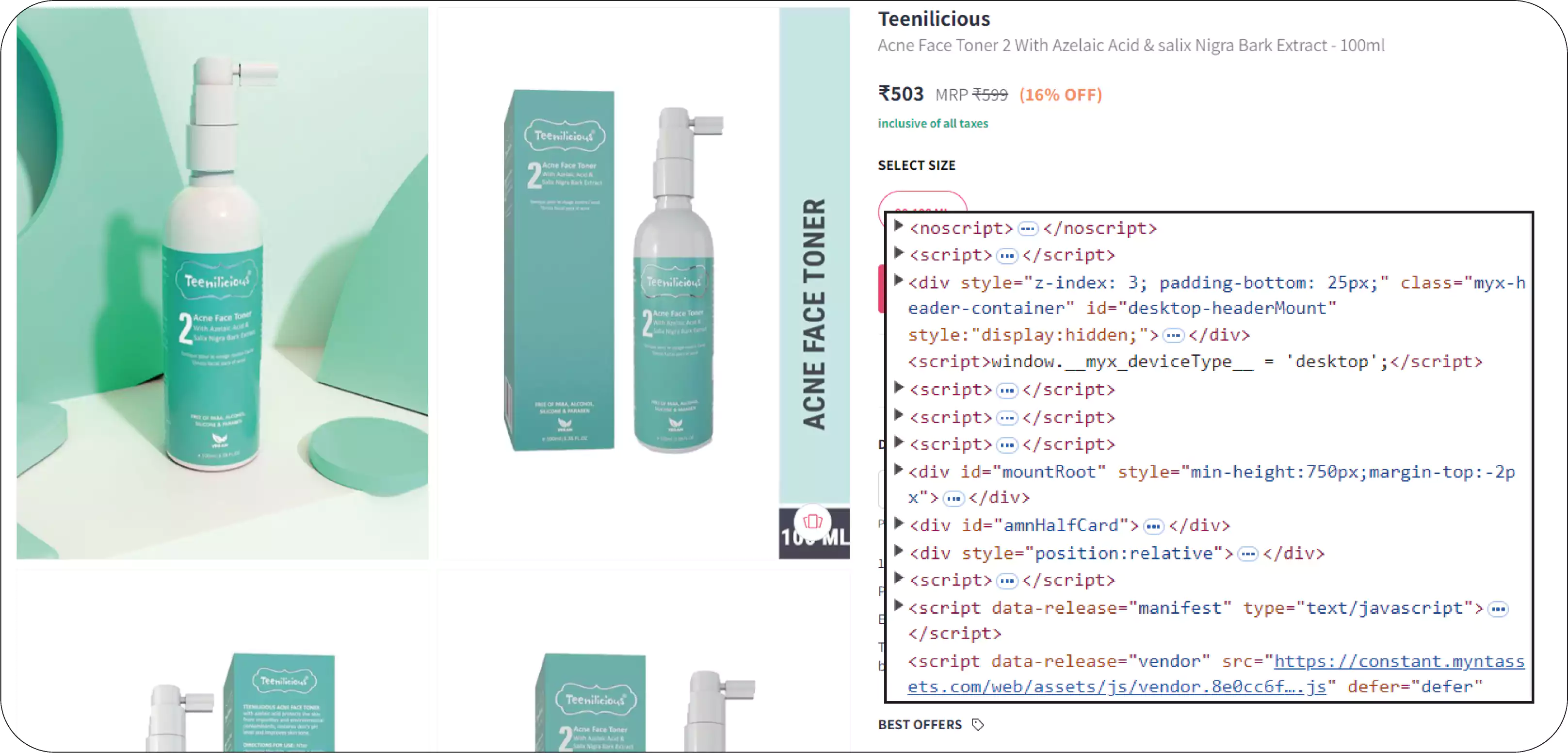
Write the Scraper: Develop a script to extract the desired data. Below is a basic example
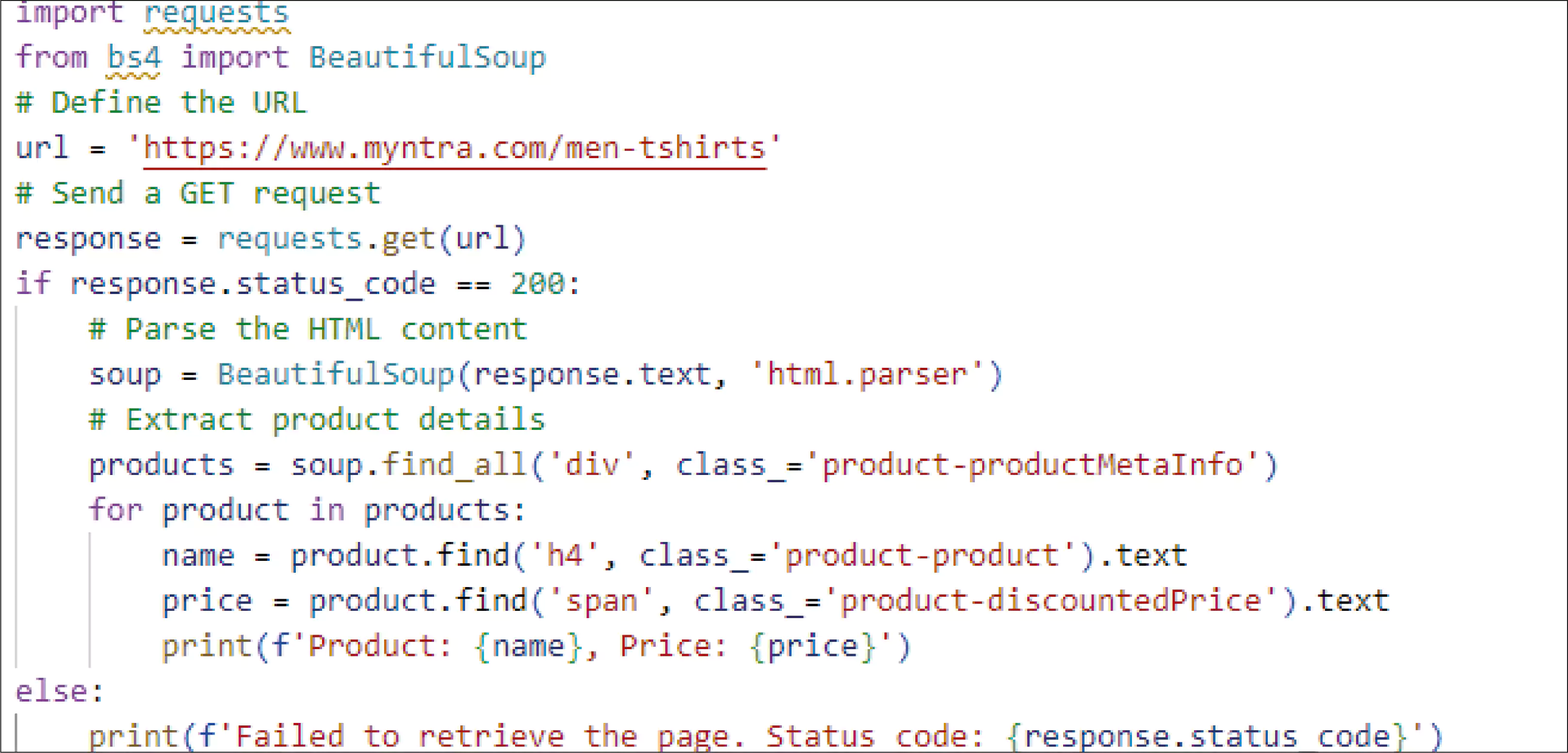
Handle Dynamic Content: If Myntra's content is loaded dynamically via JavaScript, you may need to use Selenium or Puppeteer to scrape the data.
Store the Data: Save the scraped data in a structured format such as CSV, JSON, or a database for further analysis.
Legal and Ethical Considerations
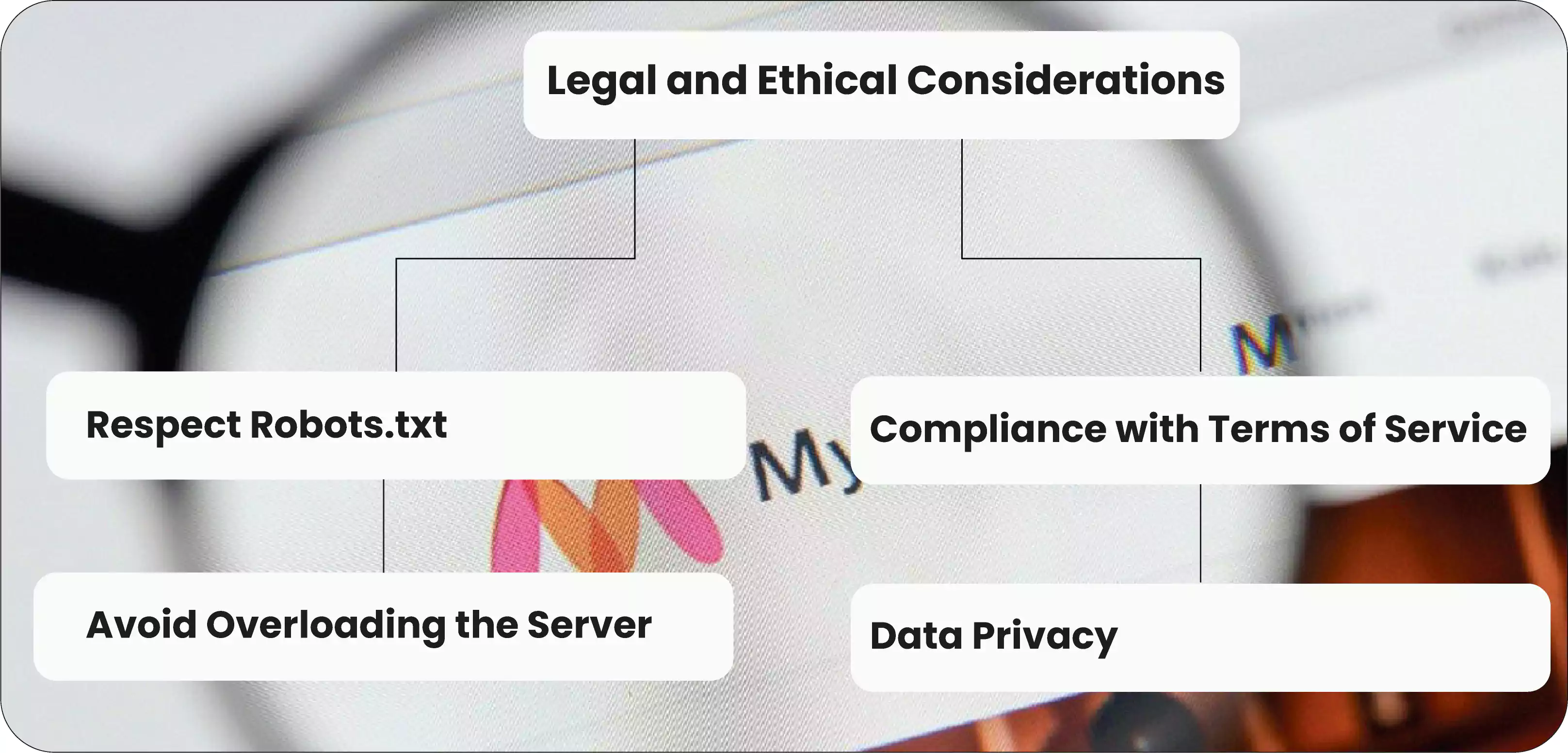
Web scraping must be conducted responsibly and ethically. Here are some important considerations:
- Respect Robots.txt: Check Myntra's robots.txt file to see which parts of the site can be scraped.
- Avoid Overloading the Server: Implement rate limiting and pause intervals in your scraper to prevent the website's servers from being overwhelmed.
- Compliance with Terms of Service: Ensure your scraping activities do not violate Myntra's terms of service.
- Data Privacy: Do not scrape personal or sensitive information without proper authorization.
Best Practices for Myntra Website Scraping
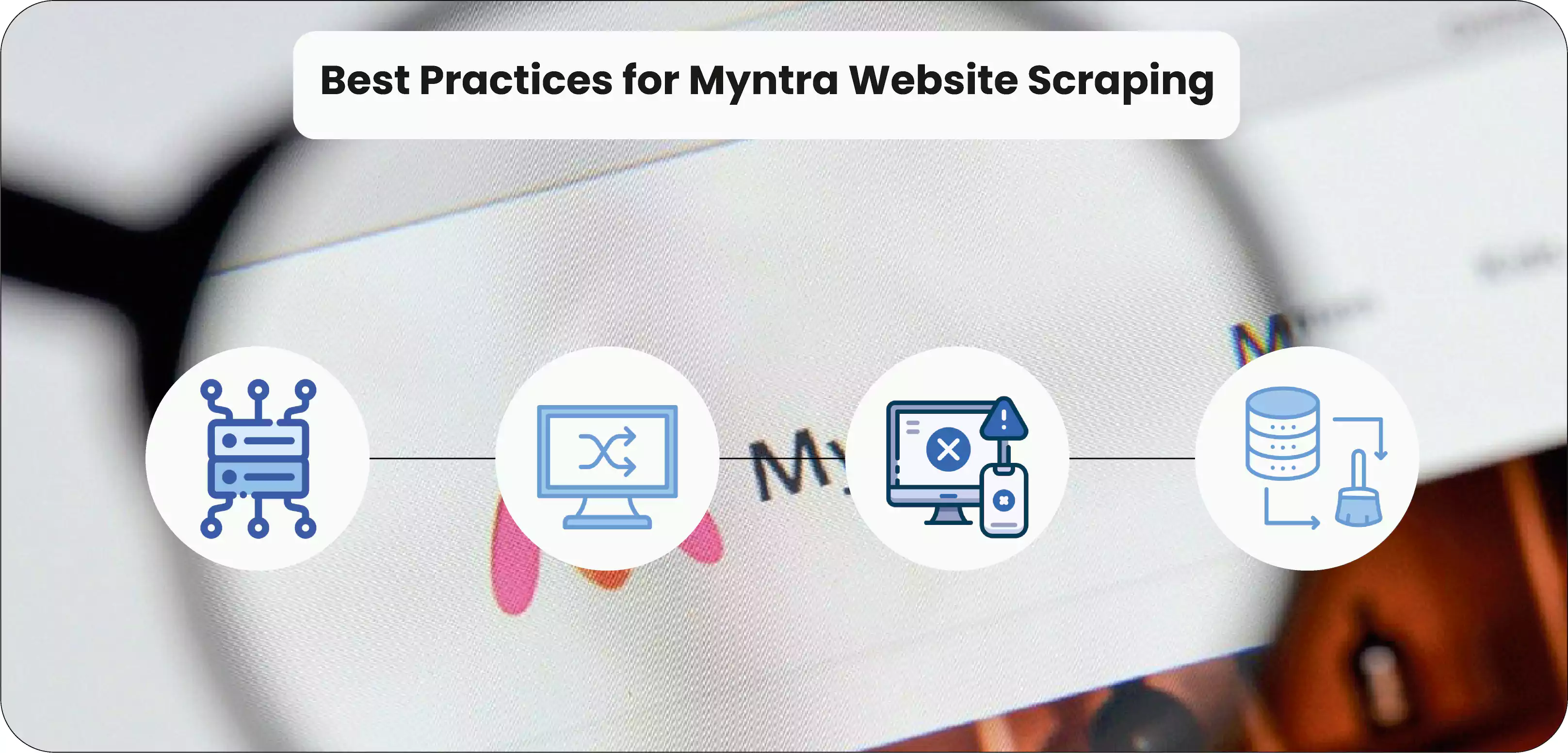
To ensure effective and ethical scraping of the Myntra website, follow the best practices below. Use rotating proxies to avoid IP blocks, monitor for website changes, implement robust error handling, and clean the data meticulously. Adhering to these practices while collecting Myntra Dataset ensures reliable and responsible data extraction.
Use Proxies: To prevent the website from blocking your IP address, it's essential to use rotating proxies. Proxies allow you to distribute your requests across multiple IP addresses, reducing the risk of detection and ensuring a smoother scraping experience. Implementing a proxy rotation strategy helps maintain a steady flow of requests and avoids server overload or bans.
Monitor Changes: Websites are frequently updated, which can alter their structure and content. Regularly monitor the target website for changes to ensure your scraping scripts continue to function correctly. Update your scraping code as needed to adapt to any website layout modifications, HTML elements, or URLs. This practice minimizes disruptions and maintains the accuracy of the data collected.
Error Handling: Robust error handling is crucial for managing potential issues during the scraping process. Implement mechanisms to handle network errors, timeouts, and unexpected website structure changes. Include retries for failed requests, log errors for troubleshooting, and set up alerts for critical issues to ensure your scraping process remains reliable and efficient.
Data Cleaning: Once data is scraped, it is essential to clean and validate it to ensure its accuracy and consistency. Remove duplicates, handle missing values, and correct any inconsistencies in the data. Data cleaning processes improve the dataset's quality, making it more useful for analysis and decision-making.
Conclusion: Scraping Myntra website provides valuable insights and data for various applications, from market analysis to competitive intelligence. To achieve effective and responsible data extraction, follow best practices such as using proxies, monitoring website changes, implementing robust error handling, and ensuring thorough data cleaning. By adhering to legal and ethical guidelines and respecting Myntra's terms of service, you can leverage the collected data effectively while maintaining responsible scraping practices
At Product Data Scrape, ethical principles are central to our operations. Whether it's Competitor Price Monitoring Services or Mobile App Data Scraping, transparency and integrity define our approach. With offices spanning multiple locations, we offer customized solutions, striving to surpass client expectations and foster success in data analytics.








































.webp)




.webp)
.webp)
.webp)